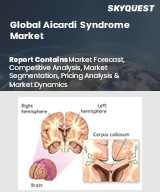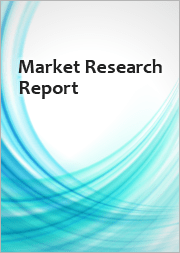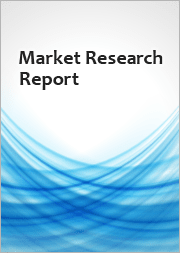
|
시장보고서
상품코드
1750738
통풍 치료제 시장 규모, 점유율, 동향 분석 보고서 : 약물 종류별, 병태별, 유통 채널별, 지역별, 부문별 예측(2025-2030년)Gout Therapeutics Market Size, Share & Trends Analysis Report By Drug Class (NSAIDs, Corticosteroids, Colchicine, Urate-Lowering Agents), By Disease Condition, By Distribution Channel (Hospital Pharmacy), By Region, And Segment Forecasts, 2025 - 2030 |
||||||
통풍 치료제 시장 성장과 동향:
Grand View Research의 최신 보고서에 따르면, 통풍 치료제 세계 시장 규모는 2030년까지 41억 3,000만 달러에 달할 것으로 예상됩니다. 이 시장은 2025년부터 2030년까지 연평균 6.45%의 성장률을 보일 것으로 예상됩니다. 이 시장의 성장은 전 세계 질병 부담의 증가, 정부 기관 및 민간 단체의 인식 제고 노력, 최근 이 분야의 새로운 치료법 개발 등에 기인합니다. 또한, 임상 파이프라인 의약품의 수가 증가하고 있는 것도 시장 성장에 유리한 기회를 제공하고 있습니다.
전 세계적으로 통풍의 유병률이 증가하고 있으며, 이는 시장 성장을 촉진하는 중요한 요인이 되고 있습니다. 예를 들어, 엘스비어(Elsevier)의 논문에 따르면 2021년 호주에서 통풍의 유병률은 1.5%에서 2.9%로 보고되고 있습니다. 마찬가지로 2021년 캐나다와 영국은 각각 약 4%와 2.33%의 질병 사례 증가를 보고했습니다. 높은 유병률은 노인 인구의 증가, 알코올 및 과당 섭취와 같은 부적절한 식습관, 좌식 생활 습관의 증가, 신장 질환, 심혈관질환, 당뇨병과 같은 동반 질환의 증가로 인해 더욱 뒷받침되고 있습니다.
탄탄한 임상시험 파이프라인과 새로운 치료제의 출시가 예측 기간 동안 시장 성장을 촉진할 것으로 예상됩니다. 현재 Jiangsu HengRui Medicine Co, Ltd.의 SHR4640과 같은 신약 후보물질이 통풍 치료제로 임상 3상 단계에 있습니다. 마찬가지로 2023년 3월 Selecta Biosciences, Inc.는 SEL-212의 3상 DISSOLVE I & II 위약 대조 무작위 임상 3상 시험에서 좋은 결과를 발표했으며, SEL-212는 만성 난치성 통풍에 대한 적응증을 가지고 있습니다.
주요 기업들은 공동 연구, M&A, 계약, 금융투자 등 전략적 이니셔티브를 통해 시장 성장을 촉진하고 있습니다. 예를 들어, 2021년 6월 Horizon Therapeutics plc는 Arrowhead Pharmaceuticals와 공동으로 RNAi 치료제를 개발하여 통제할 수 없는 통풍을 치료할 수 있는 RNAi 치료제를 개발했으며, 2022년 7월에는 FDA로부터 통제할 수 없는 통풍 환자를 위한 Krystexxa의 확대 승인을 받았습니다. 이 약은 면역요법 및 화학요법 약물인 메토트렉세이트와 함께 사용됩니다.
또한 2023년 3월, 호라이즌은 전국 신장의 달 캠페인 "Weed it G'out"을 실시하였습니다. 이 캠페인은 꽃과 잡초를 사용하여 요산이 신장에 미치는 영향의 상관관계를 표현하고 있습니다. 이 캠페인은 통풍에 대한 인식을 높이고, 통풍을 심각하게 받아들이고 전문의와 상담할 것을 촉구하는 것을 목표로 하고 있습니다.
통풍 치료제 시장 보고서 하이라이트
- NSAIDs 부문은 높은 처방률, 낮은 비용, 강력한 시장 입지 등으로 인해 2024년 시장에서 가장 큰 점유율을 차지했습니다.
- 질환별로는 만성질환에 비해 환자 수가 많은 급성질환 부문이 2024년 전체 시장 점유율의 65.77%를 차지했습니다.
- 2024년에는 소매 약국이 이 분야에서 가장 높은 부문 점유율을 차지했습니다. 그러나 예측 기간 동안 온라인 약국이 가장 빠르게 성장하는 부문이 될 것으로 예상됩니다.
- 통풍 환자 증가, 질병 치료에 대한 개인의 높은 인식, 의료 서비스에 대한 접근성 등의 요인으로 인해 2024년 세계 시장은 북미가 지배적이었습니다.
목차
제1장 조사 방법과 범위
제2장 주요 요약
제3장 통풍 치료제 시장 변수, 동향, 범위
- 시장 계통 전망
- 상부 시장 전망
- 관련/부수 시장 전망
- 시장 역학
- 시장 성장 촉진요인 분석
- 시장 성장 억제요인 분석
- 통풍 치료제 시장 분석 툴
- 업계 분석 - Porter's Five Forces 분석
- PESTEL 분석
- 가격 분석
- 파이프라인 분석
제4장 통풍 치료제 시장 : 약물 종류 추정·동향 분석
- 세계의 통풍 치료제 시장 : 약물 종류 대시보드
- 세계의 통풍 치료제 시장 : 약물 종류 변동 분석
- 세계의 통풍 치료제 시장(약물 종류별, 수익별)
- NSAIDs
- 코르티코스테로이드
- 콜키신
- 요산치 저하제
- 기타
제5장 통풍 치료제 시장 : 병태 추정·동향 분석
- 세계의 통풍 치료제 시장 : 병태 대시보드
- 세계의 통풍 치료제 시장 : 병태 변동 분석
- 세계의 통풍 치료제 시장(병태별, 수익별)
- 급성 통풍
- 만성 통풍
- 만성 통풍 시장 추정과 예측(2018-2030년)
제6장 통풍 치료제 시장 : 유통 채널 추정·동향 분석
- 세계의 통풍 치료제 시장 : 유통 채널 대시보드
- 세계의 통풍 치료제 시장 : 유통 채널 변동 분석
- 세계의 통풍 치료제 시장(유통 채널별, 수익별)
- 병원 약국
- 소매 약국
- 온라인 약국
제7장 통풍 치료제 시장 : 약물 클래스, 병상, 유통 채널별 지역 추정·동향 분석.
- 지역 대시보드
- 시장 규모, 예측 동향 분석, 2018년부터 2030년까지 :
- 북미
- 미국
- 캐나다
- 멕시코
- 유럽
- 영국
- 독일
- 프랑스
- 이탈리아
- 스페인
- 노르웨이
- 스웨덴
- 덴마크
- 아시아태평양
- 일본
- 중국
- 인도
- 호주
- 한국
- 태국
- 라틴아메리카
- 브라질
- 아르헨티나
- 중동 및 아프리카
- 남아프리카공화국
- 사우디아라비아
- 아랍에미리트
- 쿠웨이트
제8장 경쟁 구도
- 주요 시장 진입 기업의 최근 동향과 영향 분석
- 기업/경쟁 분류
- 벤더 상황
- 주요 판매대리점 및 채널 파트너 리스트
- Key customers
- Key company market share analysis, 2024
- Takeda Pharmaceutical Company Limited
- Novartis Pharmaceuticals Corporation
- Regeneron Pharmaceuticals Inc.
- Merck & Co., Inc.
- AstraZeneca
- Arrowhead Pharmaceuticals Inc.
- AstraZeneca
- Teijin Pharma Ltd.
- GSK plc.
- Zydus Group
Gout Therapeutics Market Growth & Trends:
The global gout therapeutics market size is anticipated to reach USD 4.13 billion by 2030, according to a new report by Grand View Research, Inc. The market is projected to grow at a CAGR of 6.45% from 2025 to 2030. The growth of the market is attributed to the global rise in disease burden, initiatives undertaken by government and private organizations to spread awareness among people, and the recent development of novel therapies in the space. Furthermore, the growing number of clinical pipeline drugs offers lucrative market growth opportunities.
The world is witnessing an increasing prevalence of gout, which is the key factor driving market growth. For instance, according to an Elsevier article, in 2021, Australia reported prevalence rates between 1.5% to 2.9% for gout. Similarly, in 2021, Canada and UK reported approximately 4% and 2.33% rise in disease cases respectively. High prevalence is further supported by the high geriatric population, improper diets such as consumption of alcohol and fructose, increasing sedentary lifestyle, and comorbidities like renal impairment, cardiovascular diseases, and diabetes.
The robust clinical trial pipeline and the anticipated launch of new therapeutics are expected to boost market growth over the forecast period. Presently, drug candidates like Jiangsu HengRui Medicine Co., Ltd.'s SHR4640 are in phase 3 clinical investigation for the treatment of gout. Similarly, in March 2023, Selecta Biosciences, Inc announced positive results for the Phase 3 DISSOLVE I & II placebo-controlled randomized clinical trials of SEL-212. SEL-212 is indicated for chronic refractory gout.
Key players are undertaking strategic initiatives such as collaborations, mergers and acquisitions, agreements, and financial investments, driving market growth. For instance, in June 2021, Horizon Therapeutics plc collaborated with Arrowhead Pharmaceuticals to develop RNAi therapeutic, a potential treatment for uncontrolled gout. In July 2022, the company received expanded FDA approval for Krystexxa for patients with uncontrolled gout. It is used in combination with immunotherapy and chemotherapy drug, methotrexate.
Additionally, in March 2023, Horizon organized a campaign, "Weed it G'out" for National Kidney Month. The campaign uses flowers and weeds to depict the correlation to the effect of uric acid on kidneys. The campaign aims to create awareness and urge people to take gout seriously and consult a specialist.
Gout Therapeutics Market Report Highlights:
- NSAIDs segment accounted for the largest share of the market in 2024 due to the high prescription rate, low cost, and strong presence in the market.
- Based on disease condition, the acute condition segment held 65.77% of the total market share in 2024, owing to a high patient pool compared to the chronic condition
- In 2024, retail pharmacy held the highest segment share in the space. However, online pharmacy is expected to be the fastest-growing segment over the forecast period
- North America dominated the global market in 2024 owing to factors such as increased gout cases, high awareness among individuals for disease treatment, and better healthcare access in the region
Table of Contents
Chapter 1. Methodology and Scope
- 1.1. Market Segmentation & Scope
- 1.2. Segment Definitions
- 1.2.1. Drug Class
- 1.2.2. Disease Condition
- 1.2.3. Distribution Channel
- 1.2.4. Regional scope
- 1.2.5. Estimates and forecasts timeline
- 1.3. Research Methodology
- 1.4. Information Procurement
- 1.4.1. Purchased database
- 1.4.2. GVR's internal database
- 1.4.3. Secondary sources
- 1.4.4. Primary research
- 1.4.5. Details of primary research
- 1.4.5.1. Data for primary interviews in North America
- 1.4.5.2. Data for primary interviews in Europe
- 1.4.5.3. Data for primary interviews in Asia Pacific
- 1.4.5.4. Data for primary interviews in Latin America
- 1.4.5.5. Data for Primary interviews in MEA
- 1.5. Information or Data Analysis
- 1.5.1. Data analysis models
- 1.6. Market Formulation & Validation
- 1.7. Model Details
- 1.7.1. Commodity flow analysis (Model 1)
- 1.7.2. Approach 1: Commodity flow approach
- 1.7.3. Volume price analysis (Model 2)
- 1.7.4. Approach 2: Volume price analysis
- 1.8. List of Secondary Sources
- 1.9. List of Primary Sources
- 1.10. Objectives
Chapter 2. Executive Summary
- 2.1. Market Outlook
- 2.2. Segment Outlook
- 2.2.1. Drug Class outlook
- 2.2.2. Disease Condition outlook
- 2.2.3. Distribution Channel outlook
- 2.2.4. Regional outlook
- 2.3. Competitive Insights
Chapter 3. Gout Therapeutics Market Variables, Trends & Scope
- 3.1. Market Lineage Outlook
- 3.1.1. Parent market outlook
- 3.1.2. Related/ancillary market outlook
- 3.2. Market Dynamics
- 3.2.1. Market driver analysis
- 3.2.2. Market restraint analysis
- 3.3. Gout Therapeutics Market Analysis Tools
- 3.3.1. Industry Analysis - Porter's
- 3.3.1.1. Supplier power
- 3.3.1.2. Buyer power
- 3.3.1.3. Substitution threat
- 3.3.1.4. Threat of new entrants
- 3.3.1.5. Competitive rivalry
- 3.3.2. PESTEL Analysis
- 3.3.2.1. Political landscape
- 3.3.2.2. Technological landscape
- 3.3.2.3. Economic landscape
- 3.3.3. Pricing Analysis
- 3.3.4. Pipeline Analysis
- 3.3.4.1. Phase 1
- 3.3.4.2. Phase 2
- 3.3.4.3. Phase 2
- 3.3.1. Industry Analysis - Porter's
Chapter 4. Gout Therapeutics Market: Drug Class Estimates & Trend Analysis
- 4.1. Global Gout Therapeutics Market: Drug Class Dashboard
- 4.2. Global Gout Therapeutics Market: Drug Class Movement Analysis
- 4.3. Global Gout Therapeutics Market by Drug Class, Revenue
- 4.4. NSAIDs
- 4.4.1. NSAIDs market estimates and forecasts 2018 to 2030 (USD Million)
- 4.5. Corticosteroids
- 4.5.1. Corticosteroids market estimates and forecasts 2018 to 2030 (USD Million)
- 4.6. Colchicine
- 4.6.1. Colchicine market estimates and forecasts 2018 to 2030 (USD Million)
- 4.7. Urate-Lowering Agents
- 4.7.1. Urate-Lowering Agents market estimates and forecasts 2018 to 2030 (USD Million)
- 4.8. Others
- 4.8.1. Others market estimates and forecasts 2018 to 2030 (USD Million)
Chapter 5. Gout Therapeutics Market: Disease Condition Estimates & Trend Analysis
- 5.1. Global Gout Therapeutics Market: Disease Condition Dashboard
- 5.2. Global Gout Therapeutics Market: Disease Condition Movement Analysis
- 5.3. Global Gout Therapeutics Market by Disease Condition, Revenue
- 5.4. Acute Gout
- 5.4.1. Acute Gout market estimates and forecasts 2018 to 2030 (USD Million)
- 5.5. Chronic Gout
- 5.6. Chronic Gout market estimates and forecasts 2018 to 2030 (USD Million)
Chapter 6. Gout Therapeutics Market: Distribution Channel Estimates & Trend Analysis
- 6.1. Global Gout Therapeutics Market: Distribution Channel Dashboard
- 6.2. Global Gout Therapeutics Market: Distribution Channel Movement Analysis
- 6.3. Global Gout Therapeutics Market by Distribution Channel, Revenue
- 6.4. Hospital Pharmacy
- 6.4.1. Hospital Pharmacy market estimates and forecasts 2018 to 2030 (USD Million)
- 6.5. Retail Pharmacy
- 6.5.1. Retail Pharmacy market estimates and forecasts 2018 to 2030 (USD Million)
- 6.6. Online Pharmacy
- 6.6.1. Online Pharmacy market estimates and forecasts 2018 to 2030 (USD Million)
Chapter 7. Gout Therapeutics Market: Regional Estimates & Trend Analysis by Drug Class, Disease Condition, and Distribution Channel.
- 7.1. Regional Dashboard
- 7.2. Market Size, & Forecasts Trend Analysis, 2018 to 2030:
- 7.3. North America
- 7.3.1. U.S.
- 7.3.1.1. Key country dynamics
- 7.3.1.2. Regulatory framework/ reimbursement structure
- 7.3.1.3. Competitive scenario
- 7.3.1.4. U.S. market estimates and forecasts 2018 to 2030 (USD Million)
- 7.3.2. Canada
- 7.3.2.1. Key country dynamics
- 7.3.2.2. Regulatory framework/ reimbursement structure
- 7.3.2.3. Competitive scenario
- 7.3.2.4. Canada market estimates and forecasts 2018 to 2030 (USD Million)
- 7.3.3. Mexico
- 7.3.3.1. Key country dynamics
- 7.3.3.2. Regulatory framework/ reimbursement structure
- 7.3.3.3. Competitive scenario
- 7.3.3.4. Canada market estimates and forecasts 2018 to 2030 (USD Million)
- 7.3.1. U.S.
- 7.4. Europe
- 7.4.1. UK
- 7.4.1.1. Key country dynamics
- 7.4.1.2. Regulatory framework/ reimbursement structure
- 7.4.1.3. Competitive scenario
- 7.4.1.4. UK market estimates and forecasts 2018 to 2030 (USD Million)
- 7.4.2. Germany
- 7.4.2.1. Key country dynamics
- 7.4.2.2. Regulatory framework/ reimbursement structure
- 7.4.2.3. Competitive scenario
- 7.4.2.4. Germany market estimates and forecasts 2018 to 2030 (USD Million)
- 7.4.3. France
- 7.4.3.1. Key country dynamics
- 7.4.3.2. Regulatory framework/ reimbursement structure
- 7.4.3.3. Competitive scenario
- 7.4.3.4. France market estimates and forecasts 2018 to 2030 (USD Million)
- 7.4.4. Italy
- 7.4.4.1. Key country dynamics
- 7.4.4.2. Regulatory framework/ reimbursement structure
- 7.4.4.3. Competitive scenario
- 7.4.4.4. Italy market estimates and forecasts 2018 to 2030 (USD Million)
- 7.4.5. Spain
- 7.4.5.1. Key country dynamics
- 7.4.5.2. Regulatory framework/ reimbursement structure
- 7.4.5.3. Competitive scenario
- 7.4.5.4. Spain market estimates and forecasts 2018 to 2030 (USD Million)
- 7.4.6. Norway
- 7.4.6.1. Key country dynamics
- 7.4.6.2. Regulatory framework/ reimbursement structure
- 7.4.6.3. Competitive scenario
- 7.4.6.4. Norway market estimates and forecasts 2018 to 2030 (USD Million)
- 7.4.7. Sweden
- 7.4.7.1. Key country dynamics
- 7.4.7.2. Regulatory framework/ reimbursement structure
- 7.4.7.3. Competitive scenario
- 7.4.7.4. Sweden market estimates and forecasts 2018 to 2030 (USD Million)
- 7.4.8. Denmark
- 7.4.8.1. Key country dynamics
- 7.4.8.2. Regulatory framework/ reimbursement structure
- 7.4.8.3. Competitive scenario
- 7.4.8.4. Denmark market estimates and forecasts 2018 to 2030 (USD Million)
- 7.4.1. UK
- 7.5. Asia Pacific
- 7.5.1. Japan
- 7.5.1.1. Key country dynamics
- 7.5.1.2. Regulatory framework/ reimbursement structure
- 7.5.1.3. Competitive scenario
- 7.5.1.4. Japan market estimates and forecasts 2018 to 2030 (USD Million)
- 7.5.2. China
- 7.5.2.1. Key country dynamics
- 7.5.2.2. Regulatory framework/ reimbursement structure
- 7.5.2.3. Competitive scenario
- 7.5.2.4. China market estimates and forecasts 2018 to 2030 (USD Million)
- 7.5.3. India
- 7.5.3.1. Key country dynamics
- 7.5.3.2. Regulatory framework/ reimbursement structure
- 7.5.3.3. Competitive scenario
- 7.5.3.4. India market estimates and forecasts 2018 to 2030 (USD Million)
- 7.5.4. Australia
- 7.5.4.1. Key country dynamics
- 7.5.4.2. Regulatory framework/ reimbursement structure
- 7.5.4.3. Competitive scenario
- 7.5.4.4. Australia market estimates and forecasts 2018 to 2030 (USD Million)
- 7.5.5. South Korea
- 7.5.5.1. Key country dynamics
- 7.5.5.2. Regulatory framework/ reimbursement structure
- 7.5.5.3. Competitive scenario
- 7.5.5.4. South Korea market estimates and forecasts 2018 to 2030 (USD Million)
- 7.5.6. Thailand
- 7.5.6.1. Key country dynamics
- 7.5.6.2. Regulatory framework/ reimbursement structure
- 7.5.6.3. Competitive scenario
- 7.5.6.4. Thailand market estimates and forecasts 2018 to 2030 (USD Million)
- 7.5.1. Japan
- 7.6. Latin America
- 7.6.1. Brazil
- 7.6.1.1. Key country dynamics
- 7.6.1.2. Regulatory framework/ reimbursement structure
- 7.6.1.3. Competitive scenario
- 7.6.1.4. Brazil market estimates and forecasts 2018 to 2030 (USD Million)
- 7.6.2. Argentina
- 7.6.2.1. Key country dynamics
- 7.6.2.2. Regulatory framework/ reimbursement structure
- 7.6.2.3. Competitive scenario
- 7.6.2.4. Argentina market estimates and forecasts 2018 to 2030 (USD Million)
- 7.6.1. Brazil
- 7.7. MEA
- 7.7.1. South Africa
- 7.7.1.1. Key country dynamics
- 7.7.1.2. Regulatory framework/ reimbursement structure
- 7.7.1.3. Competitive scenario
- 7.7.1.4. South Africa market estimates and forecasts 2018 to 2030 (USD Million)
- 7.7.2. Saudi Arabia
- 7.7.2.1. Key country dynamics
- 7.7.2.2. Regulatory framework/ reimbursement structure
- 7.7.2.3. Competitive scenario
- 7.7.2.4. Saudi Arabia market estimates and forecasts 2018 to 2030 (USD Million)
- 7.7.3. UAE
- 7.7.3.1. Key country dynamics
- 7.7.3.2. Regulatory framework/ reimbursement structure
- 7.7.3.3. Competitive scenario
- 7.7.3.4. UAE market estimates and forecasts 2018 to 2030 (USD Million)
- 7.7.4. Kuwait
- 7.7.4.1. Key country dynamics
- 7.7.4.2. Regulatory framework/ reimbursement structure
- 7.7.4.3. Competitive scenario
- 7.7.4.4. Kuwait market estimates and forecasts 2018 to 2030 (USD Million)
- 7.7.1. South Africa
Chapter 8. Competitive Landscape
- 8.1. Recent Developments & Impact Analysis, By Key Market Participants
- 8.2. Company/Competition Categorization
- 8.3. Vendor Landscape
- 8.3.1. List of key distributors and channel partners
- 8.3.2. Key customers
- 8.3.3. Key company market share analysis, 2024
- 8.3.4. Takeda Pharmaceutical Company Limited
- 8.3.4.1. Company overview
- 8.3.4.2. Financial performance
- 8.3.4.3. Product benchmarking
- 8.3.4.4. Strategic initiatives
- 8.3.5. Novartis Pharmaceuticals Corporation
- 8.3.5.1. Company overview
- 8.3.5.2. Financial performance
- 8.3.5.3. Product benchmarking
- 8.3.5.4. Strategic initiatives
- 8.3.6. Regeneron Pharmaceuticals Inc.
- 8.3.6.1. Company overview
- 8.3.6.2. Financial performance
- 8.3.6.3. Product benchmarking
- 8.3.6.4. Strategic initiatives
- 8.3.7. Merck & Co., Inc.
- 8.3.7.1. Company overview
- 8.3.7.2. Financial performance
- 8.3.7.3. Product benchmarking
- 8.3.7.4. Strategic initiatives
- 8.3.8. AstraZeneca
- 8.3.8.1. Company overview
- 8.3.8.2. Financial performance
- 8.3.8.3. Product benchmarking
- 8.3.8.4. Strategic initiatives
- 8.3.9. Arrowhead Pharmaceuticals Inc.
- 8.3.9.1. Company overview
- 8.3.9.2. Financial performance
- 8.3.9.3. Product benchmarking
- 8.3.9.4. Strategic initiatives
- 8.3.10. AstraZeneca
- 8.3.10.1. Company overview
- 8.3.10.2. Financial performance
- 8.3.10.3. Product benchmarking
- 8.3.10.4. Strategic initiatives
- 8.3.11. Teijin Pharma Ltd.
- 8.3.11.1. Company overview
- 8.3.11.2. Financial performance
- 8.3.11.3. Product benchmarking
- 8.3.11.4. Strategic initiatives
- 8.3.12. GSK plc.
- 8.3.12.1. Company overview
- 8.3.12.2. Financial performance
- 8.3.12.3. Product benchmarking
- 8.3.12.4. Strategic initiatives
- 8.3.13. Zydus Group
- 8.3.13.1. Company overview
- 8.3.13.2. Financial performance
- 8.3.13.3. Product benchmarking
- 8.3.13.4. Strategic initiatives
(주말 및 공휴일 제외)


















